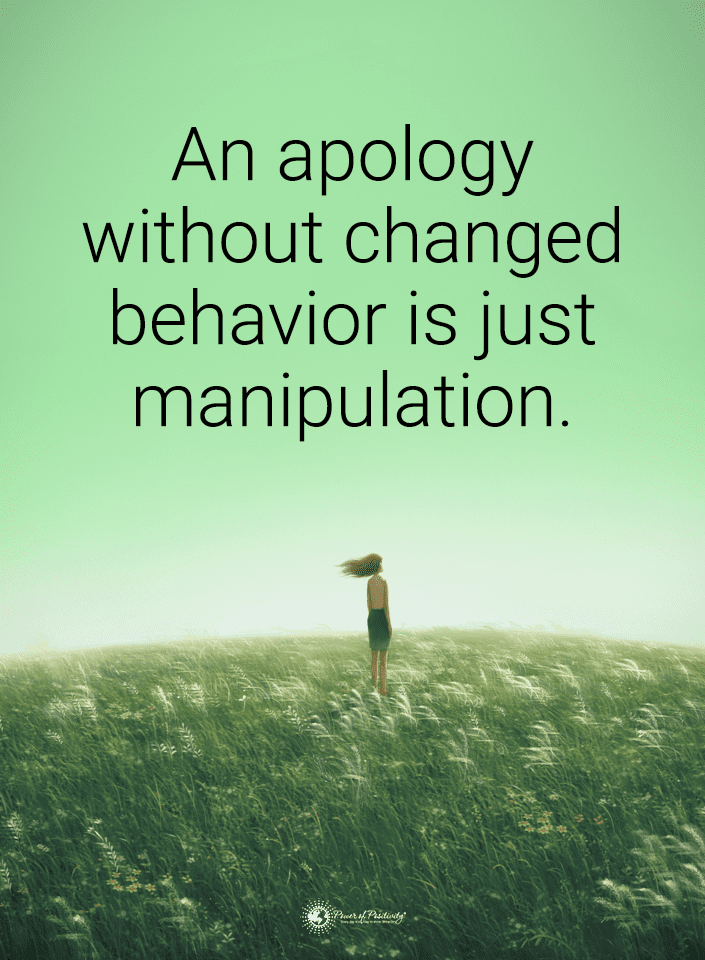Did you grow up with a narcissist dad?
Psychologists and relationship experts provide insights into the telltale behaviors revealing a narcissistic father. Growing up and living with a narcissist for either parent is a challenging experience with long-lasting effects on emotional well-being.
If you have a father like this, they likely lack self-awareness and empathy for those around them. He’ll also be emotionally unavailable, neglectful, and abusive and have unrealistic or incredibly high expectations.
Growing up with a narcissist can lead to struggling with anxiety, depression, and self-esteem. You also might experience many unhealthy romantic relationships and friendships.
Knowing the behaviors of a narcissistic father can help you identify the situation. Then, you can gain insight into your experiences and understand the importance of seeking support. It’ll help you overcome the harmful effects of growing up this way.
NOTE: We acknowledge that mothers can also be narcissists. However, their behaviors differ somewhat, and we address them in a separate article.
Understanding Narcissistic Personality Disorder (NPD)
Narcissistic personality disorder (NPD) is a mental health condition that can interfere with parenting abilities and involves grandiose behavior. This disorder will likely contribute to issues within relationships, work life, and finances. They don’t usually think or admit something is wrong, so they don’t seek treatment, creating further issues.
NPD symptoms include general unhappiness and difficulty managing daily problems. They’ll also experience disappointment when not given special treatment and get upset from criticism, even if it’s constructive. These behaviors can impact familial relationships by leading children to need to please others and experience mental health issues and other problems.
A qualified health professional can diagnose narcissism, and it requires exhibiting at least five of the diagnostic criteria, including:
- frequent grandiose behavior
- feeling more special and unique than those around them
- only associating with people or institutions that are high-status
- seeking constant admiration
- lacking empathy
- exploiting others
- entitlement
- being envious of others or thinking other people are envious of them
- preoccupation with fantasies of brilliance, success, power, love, and beauty
- arrogance
The Narcissistic Father Has an Excessive Need for Admiration
A narcissist needs admiration and constant validation. It involves self-absorption and prioritizing their interests and needs over those of their children or other people in the home.
He’ll want you to give him constant attention because of a falsely inflated sense of importance. A father like this will likely overtake conversations, ensuring the attention is on him. He does what he can to ensure his opinion is the leading one and doesn’t show interest in what others think.
This need for admiration leads to fantasizing about superiority, power, perfection, and uniqueness. He’ll also brag about and exaggerate accomplishments. Additionally, he’ll act like he has no flaws and blames others when things don’t go as planned.
Grandiosity and Superiority
A narcissist leans into his sense of superiority so much that he’ll become competitive with his children, especially his sons. He’ll do whatever it takes to continue his superiority complex, even if it means intentionally winning over them. It may interfere with their children’s ability to succeed and lead the life of their dreams.
A father like this also engages in self-promotion by boasting or embellishing about things in their life. They do this to seem better than others and boost their self-esteem.
A parent like this will want their children to act, speak, and dress in a specific way publicly. It helps them maintain a sense of grandiosity and superiority over those around them. They want a perfect family image while hiding issues from anyone outside the home.
They’ll likely portray themselves as loving parents who care for their children. However, the truth is that they have no tolerance when their children have different values, opinions, and needs.
Grandiosity can affect children by harming their overall well-being. You might struggle to form meaningful and healthy connections. It can also contribute to you developing grandiose behavior, as well.
A father’s superiority complex can lead to children developing mental health conditions, including anxiety and depression. It can also affect how you handle challenges and setbacks throughout your life.
A Narcissistic Father Has a Lack of Empathy and Understanding
Narcissists often exhibit a lack of empathy and understanding. They might spend time invalidating feelings, and you’ll experience emotional neglect from their antics.
Some examples of emotional neglect include:
- shaming you for your need for connection
- using you as a tool to fulfill their needs
- not fulfilling physical, safety, medical, and educational needs
- seeming not to care or try to understand their children’s feelings
- not considering the perspective of those around them
- avoiding emotions
- projecting
- gaslighting
- giving the silent treatment
Invalidation of feelings in the family can cause toxicity and other complications. Plus, your father’s lack of empathy has effects, including ignoring your needs or seeing them as secondary to others.
If you grow up with a father like this, you’ll also be more likely to develop narcissistic traits because it creates a cycle of emotional neglect. However, you can break the cycle by getting professional help and improving your overall life.
A Narcissistic Father Exerts Dominance and Control
Narcissistic fathers often exhibit dominant behavior and use control tactics or psychological manipulation to get what they want. They’ll likely view disagreements or differing opinions as personal attacks and get angry.
Some examples of dominant behavior or control tactics in parent-child relationships to watch for include:
- belittling those that disagree
- dismissing opinions or thoughts that don’t fit theirs
- bullying to keep children compliant
- limiting children’s freedom
- stifling creativity
- forcing children to suppress their self-expression
- insulting those in the home
- demanding things of their children
- threatening
- punishing and disciplining for breaking strict rules
- making decisions without input from others
- taking over discussions
- being frequently impatient
Fathers like this also manipulate their children by pressuring them to do what’s best for the father. It won’t matter what’s best for the child because the father prioritizes himself and wants to control others.
Conditional Love and Affection
Narcissistic fathers offer conditional love and affection based on their standards. The standards often include the child’s performance or behavior, causing negative impacts. He’ll likely emotionally withdraw, leading to detrimental effects for you.
Emotional withdrawal and performance-based affection can impact you by increasing your risk of depression, anxiety, and struggles with self-esteem. It also makes you more likely to develop unhealthy relationships, even in adulthood.
A father might avoid being home often if he offers conditional love. They’ll also shame your need for connection and only come to you when they need to fulfill their need for admiration and praise.
Other signs a father offers conditional love include feeling like you:
- must be perfect
- can’t express your feelings or opinions
- have little support or encouragement from your parent
- get shut down every time you speak to your parent
Frequent Criticism and Belittlement
A narcissistic father will offer frequent criticism, belittling comments, and negative reinforcement. They can’t be a good parent when they struggle with empathy, compassion, and putting themselves after their children.
He’ll downplay or dismiss your achievements to make you feel you’re never good enough. This tactic is his way of maintaining superiority and diminishing your sense of self-worth.
Some of the effects his criticism and belittlement have on his children include:
- diminished self-esteem
- anxiety with expressing emotions
- struggling to develop and maintain meaningful relationships
- being sensitive to criticism
- fearing judgment from self-expression
A Narcissistic Father Manipulates Family Roles
A narcissist often manipulates family roles and assigns labels. These labels include the golden child, scapegoat, and other roles. It shifts family dynamics in a way that psychologically impacts all those involved.
The golden child typically gets all the positive attention, with the narcissistic father frequently complimenting them. This child will often receive better treatment than their siblings, while the others might get ignored or heavily criticized. It can create resentment and sibling competition, typically causing a toxic dynamic.
On the other hand, a scapegoat is a family member who gets blamed for everything. When things go wrong, this person often receives emotional abuse and neglect from their parent.
Another role in a family with a narcissistic father is the enabler. This person often helps their parent manipulate the others in your home. There’s also the invisible or lost child who gets overlooked and neglected more than the others.
The dynamics in a narcissistic family can lead to decreased self-esteem because children feel like they can’t measure up to what their father expects from them. If you’re in this position, you may feel like you’re not good enough or equal to those around you.
These dynamics also cause long-lasting emotional damage because they don’t involve unconditional love from a father. You’ll likely want to do whatever you can to get your father’s approval, even when it never seems to come.
Children of a narcissist also might experience Complex PTSD, causing them to have less mental space before they become overwhelmed. The dynamics are dysfunctional and cause harm for everyone in the home.
Seeking Professional Help if You Have a Narcissistic Father
If you have a narcissistic father, seeking professional help through psychological counseling or family therapy can make a difference. It can help you learn to navigate the dynamics, prioritize self-care, build a strong sense of self-worth, and set boundaries.
Setting boundaries is essential, and it helps to talk to someone who understands your situation. Learning to differentiate words from actions and spending time around stable and reliable people can also help.
A therapist can also help you learn to have healthy relationships. If you convince your father to attend family therapy, he can learn to shift his parenting behaviors and ease his narcissistic tendencies. He may not agree to get help, but you should still focus on building support networks to help you overcome the detrimental effects or narcissists.
Final Thoughts on Coping with a Narcissistic Father
Seeking professional help can help you cope and heal from a narcissistic father. Prioritizing your mental health and seeking support is essential because you deserve love, acceptance, and support. You don’t deserve the treatment you received from your father, and getting help can help you reverse the effects.
Coping with the behaviors of a narcissistic father can be tricky, but you can overcome the effects. You can effectively process your experiences and develop healthier coping mechanisms that help you live a fulfilling life.

















 Community
Community

